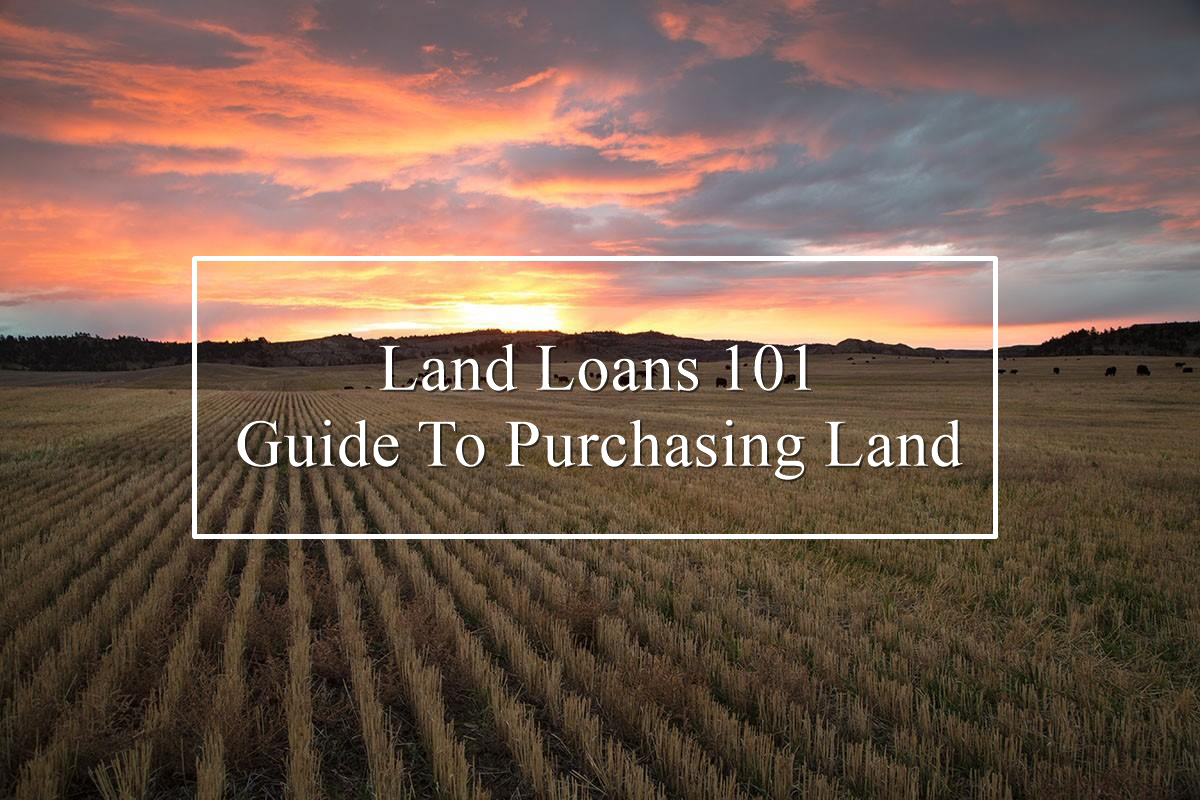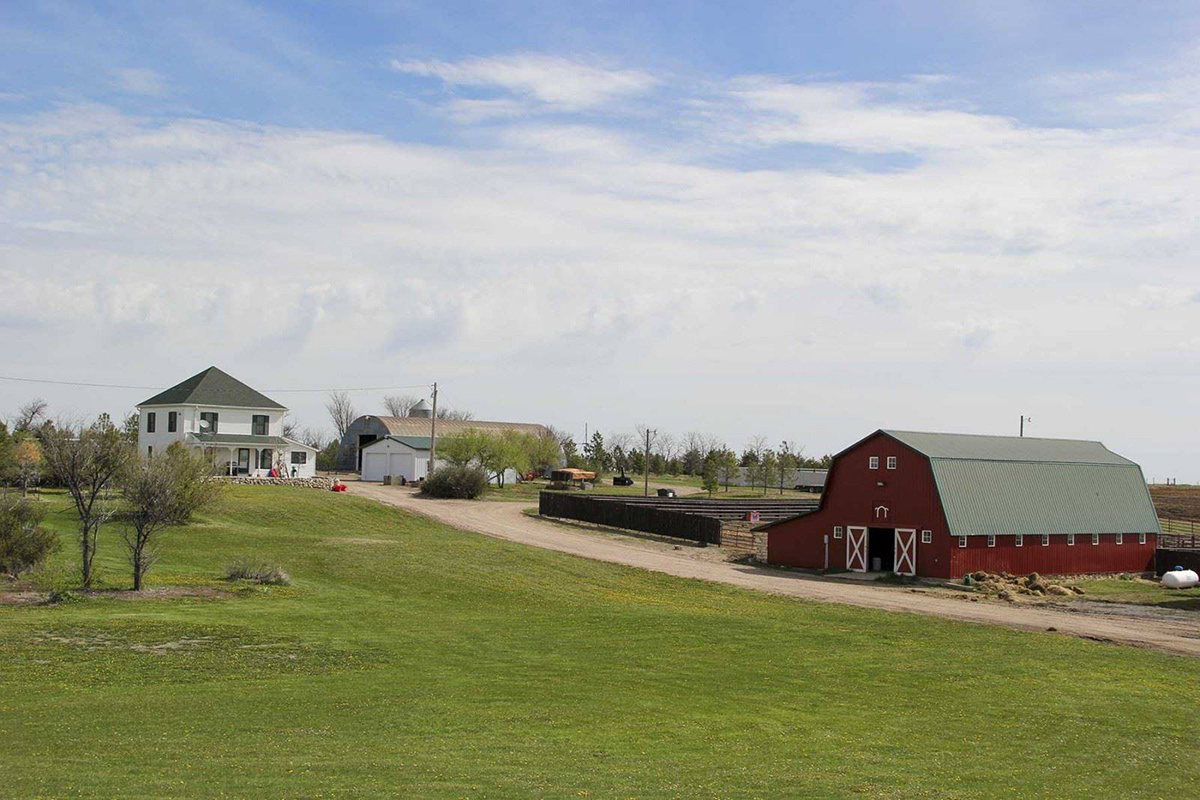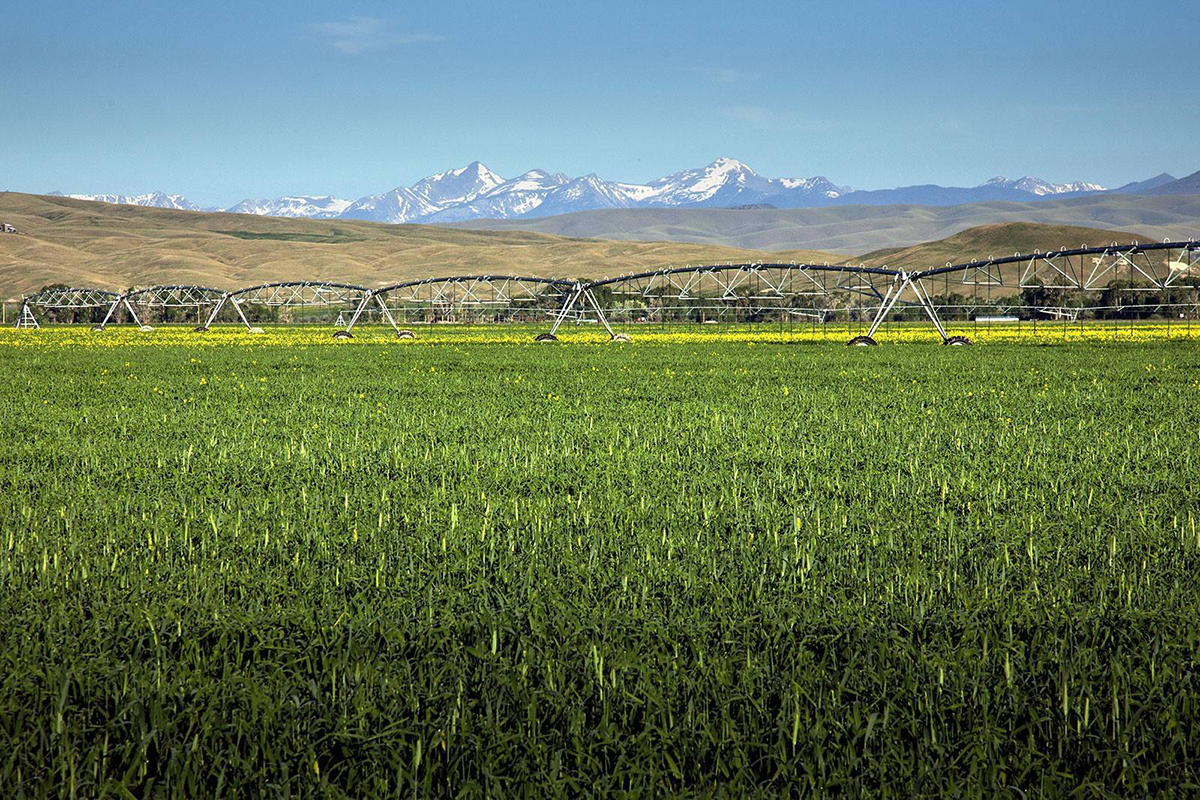Land loans for a farm, ranch, or recreational land is often times the number one thing standing in the way of achieving your dream. The uncertain waters around applying and obtaining land loans swallow consumers whole as they are often so hard to acquire. One of the main reasons behind this is the sheer daunting nature of a land loan and its difference from the more familiar mortgage, something the consumer has been familiar with. This Land Loans 101: Guide to Purchasing Land will provide you a lighthouse to escort you through the foggy waters of the process of attaining a land loan.
Up first is a little background on why land loans are so hard to obtain. This question is asked so often that we cannot help but address an issue on most consumer’s minds.
 Why are Land Loans so Hard to Obtain?
Why are Land Loans so Hard to Obtain?
Land loans are simply hard to get because of three reasons. These reasons are:
- Land loan lenders are limited in number compared to home loan lenders.
- Few land loan lenders specialize in land loans and only land loans.
- Land loans are in nature riskier loans.
Land loan lenders are limited in number compared to home loan lenders. We bet if you wanted to purchase a home or refinance your current home you could automatically think of several lenders that would love to compete for your home loan. Now, how many lenders can you think of that would offer you a land loan for the 160-acre recreational land you want to purchase. Because there is a limited amount of lenders who offer land loans, this makes it harder to obtain a land loan. This is simply a matter of supply and demand. More people are purchasing homes than land. So, more banks offer home loans than land loans. As the supply of land loan lenders decreases, the harder it is for the consumer to not only find a lender but develop a relationship with their lender.
Few land loan lenders specialize in land loans and only land loans. If you do get lucky to find a land loan lender, many times they offer a wide variety of loans and do not specialize in land loans. This just adds to the frustration due to the fact you get half way through the process only to realize your loan officer does not have a clue or relate in any way to your farm or ranch operation. If the loan officer does not understand your way of life then how can they give you financial advice on the best loan products and terms that fit your needs. This very often adds additional expense and time to the loan process. Due to these extra costs and lost time, many needing a land loan simply continue to search in frustration.
Land loans are riskier loans than home loans. One main reason is as an individual’s income decreases they will choose to let their land loan default before they will lose their home. Also, raw land values typically can have wider swings in value due to the fact that if a recession hits land will lose value faster than residential markets. As land loans are riskier, lenders require more collateral and greater financial strength from the customer to give them a land loan. As more is required down to purchase land and the financial condition of the borrower is tightened fewer people can get approved for a land loan.
These three reasons do make it harder for the individual looking for a land loan to achieve the loan they are searching for. Don’t give up! Land loan lenders are available and they do want to give you the land loan that fits your need.
 Where to Start | Calculating and Applying for a Land Loan
Where to Start | Calculating and Applying for a Land Loan
Getting started in the process of applying for a land loan is fast and easy! To start, fill out the information on the Get Started Form then read the rest of the information to get a better understanding of what goes on a land loan.
Specializing in farm loans, ranch loans, and recreational real estate loans we understand the need for monthly, semi-annual and annual payments options. These payment terms are something we offer to help coincide with your income from your crop or livestock production or your nonfarm income.
This land loan calculator is provided for your reference. In addition to monthly payments Land Loan Specialists.com, LLC does offer annual and semi-annual payments. Rates and terms are subject to change and this calculator is being provided only as a reference point. We apologize this payment calculator doesn’t calculate payments for these other options. Feel free to contact a Farm Loan Specialist today to determine any of these other options for you!
Is Now A Good Time To Buy Land?
Is now a good time to purchase that piece of property you have always wanted? When is the best time for you to apply for a farm loan? Before you come to us to purchase your dream property, here are a few things to consider while you are looking:
 The Beginning Farmer and Rancher Act of 2013 may be a perfect fit for you. If you are thinking about applying for a farm loan or ranch loan, you may qualify for assistance under the program.
The Beginning Farmer and Rancher Act of 2013 may be a perfect fit for you. If you are thinking about applying for a farm loan or ranch loan, you may qualify for assistance under the program.
What about running your own equestrian facility or peach orchard? Those qualify for an agricultural mortgage. For more information about it, you can contact us at landloanspecialists.com. We are here to help you fulfill your dream.
If you already own a farm or ranch and want to expand or improve your business, a ranch loan may be perfect for you. Unlike most lenders, we don’t run through a lengthy and expensive refinancing process. landloanspecialists.com can help you organize your finances and paperwork to get your loan quickly and easily. Whether you are buying a farm or ranch, expanding your existing operation or making long-term improvements to your property you’ll find a wide variety of mortgages with the most competitive rates in the state. We have competitive rates on our refinancing programs, too.
Farm loans and agriculture loans can be a little harder to obtain simply because there are not as many agriculture mortgage companies as there are residential mortgage companies. Also, the risk of default is statistically higher than residential loans. Finding a good agriculture mortgage company is key and landloanspecialists.com is the first company you should call to get all of your questions answered when seeking out your land loan. Becoming a farm or ranch owner is both exciting and rewarding. It can also be a great investment for you and your family to enjoy for many years to come. A land loan does not have to be a hassle or difficult as long as you find the right agriculture mortgage company.
 What is The Down Payment on Land Loans?
What is The Down Payment on Land Loans?
Answer: When looking for a land loan and trying to determine what you might need for a down payment you can typically expect a range between 20% to 40%. Each land lender has different parameters, but we have listed 3 key factors that usually hold the most significant value to land lenders when determining what you may need for a down payment on a land loan.
- Repayment capabilities
2. The appraisal and/or purchase value
3. Collateral value from land already owned - The ability to repay a land loan is always the highest priority for any land loan lender. Detailed analysis is done on applicants wanting a land loan to determine what down payment is required. Personal and or corporate balance sheets, tax returns, and credit history all play an important role in determining if someone is capable of repayment for a land loan and ultimately what is needed as a down payment. If a solid repayment capability can be determined than the amount allowed to be borrowed could be increased causing potentially a lower down payment. If repayment is marginal and causes increased risk, a larger down payment could be expected.
- Whenever land is purchased, an appraisal will have to be done if a land loan is desired. An appraisal is done in order to establish the value of the land at the time of purchase. Most land loan lenders require detailed narrative summary appraisals to ensure a true value of the land. In many cases, the appraisal value does not exactly match that of the appraisal value. Most often, the loan amount is determined on a percent of the lowest value of either the appraisal value or the purchase price. That percent creates an L.T.V. (loan to value). Most lenders require a standard 60 to 80 percent Loan to Value, meaning a down payment of 20 to 40 percent is required.
- So what if you do not have the necessary cash available for the 20 to 40 percent or do not want to use that amount of cash for your land loan? Some land loan lenders offer other alternatives for land loans. The amount of down payment can be dramatically reduced or even completely eliminated if you have a property you already own that has substantial equity. You are then able to cross collateralize your already owned property with the new property. If the combination of value between your existing property and the newly purchased property is at a value against the land loan amount at the 60 to 80 percent required by most land loan lenders, then a loan could be given with little or no down payment.
These three factors all hold the majority of possibilities for the required down payment amount for a land loan. However, every land loan is case sensitive. There could be many more factors that influence the amount needed for a down payment. The only sure way to know is to contact a lender specific to land loans and openly communicate your situation and purchase desire. After a short time with all of your information, they should be able to give you an exact answer to what will be needed for a down payment.
Understanding an Intrest Rate on a Land Loan
The interest rate charged to a borrower can be described as the cost of borrowing money. It is the farm lender’s compensation for servicing a loan and bearing the risk of lending. The interest rate is the borrower’s cost for the ability to spend now, rather than save the money and make a purchase later. If a borrower had to wait until they saved the money for the purchase, they would often have to defer opportunities that could possibly generate future cash flow. The ability to borrow money and have it now also allows borrowers to take advantage of opportunities that are currently available that may not be available in the future. Many times, the interest a borrower pays to obtain the money now is less than the cost of forgoing a missed opportunity.
Many factors affect the interest rate on a real estate loan: length of the note, type of loan product, collateral offered as security, repayment ability, supply and demand of credit, and the government’s monetary policy.
While we have very little control over the government and economic activity, there are a few factors that a borrower should understand.
1) Maturity Date The longer period of time between the origination and the maturity of the farm loan will cause the interest rate to increase. This is partly due to the time value of money and inflation. The dollar will presumably buy less in 20 years than it will today.
2) Loan Product Interest rates vary with the type of farm loan product a borrower obtains. Loan products can have a fixed, adjustable, or variable interest rate. A fixed rate carries the same interest rate throughout the life of the loan. It offers a borrower some stability in knowing that the payment requirements will not change. An adjustable rate sets intervals in which the interest rate changes, such as every 3, 5, or 10 years. A variable rate also sets intervals in which the interest rate may change but it can be at the discretion of the lender. An adjustable or variable rate farm loan product usually offers lower interest rates.
3) Collateral Collateral is what the farm lender uses as security for a loan. If a borrower is obtaining a loan for farm real estate, the lender will usually put a mortgage on that farm property to serve as security. However, collateral offered as security does not have to be restricted to only property that is being purchased. The farm lender can take a mortgage on land the borrower already owns, in addition to the property being purchased, to serve as additional collateral.
4) Credit Score A borrower’s credit score tells the farm lender how the borrower has handled money in the past. It also tells the farm lender what other financial obligations the borrower currently has and if that might impact the borrower’s repayment ability in the future.
The above factors are just pieces to the overall puzzle. Each factor alone does not constitute what an interest rate might be set as. Farm lenders consider all the pieces and how they interrelate to determine the interest rate on a loan product. The borrower who understands the factors that affect the interest rate will be in a better position to gain the biggest advantage with their borrowing needs.
 How Long Will Obtaining a Land Loan Take?
How Long Will Obtaining a Land Loan Take?
This great question has been asked many times. There are several answers to this question. This section will focus on only one area of why it takes longer to get a farm loan than to finance a new vehicle.
This one reason is TITLE!
When you apply for a farm loan the lender will want a title insurance policy to insure their loan is valid and in first lien position. This process usually starts with the farm loan lender calling a title company and requesting a title commitment. A title commitment will show several things: current ownership, any mortgages or deeds of trust owed against the real estate, any judgments or liens against the current owners and most important any cloud on title.
The title commitment can take anywhere from a day to two weeks to complete. A large number of the commitments on any real estate transactions will have problems! This list of problems can include: judgments/liens against the owner, a neighbor had a typo on his deed or mortgage that was filed on your property, the road you are using to get into the property is not really a public road….etc….
Because of all of these problems, you could have to hire an attorney to fix these problems and this takes a couple of weeks. So now because of the time, it took to get the title commitment and the time it took to get the title fixed you are looking at 4 weeks.
On an auto title, you simply sign the back of the title and take to your local tag agent. Your lender attaches a lien on the vehicle and in less than half a day you have your new pickup and loan.
So why not do the same type of transaction with real estate titles?
First Reason: Farm loan lenders know this fact and want to make sure at the time of the loan all problems are cleared. How many car titles have problems? Other than a lien against the vehicle there are no problems.
This brings up the second reason. The only document that can be filed against a car title is a lien. The list of what can be filed against the real estate title is a mile long from deeds, mortgages, liens, leases, assignments, affidavits, financing statements, releases, the power of attorneys, trusts, decrees and the list goes on and on.
All of these possible filings make the title more complex. This, in turn, causes more time to be spent by a real estate expert to determine how all of these documents affect title to the real estate. Also, the large number of these filings guarantee there will be more problems with wrong names, dates, notaries, typos, and legal descriptions.
But one thing you can feel better about. If you do get a farm loan, a farm loan lender will walk you through this whole process.
How Long does the Loan Process Take?
The average time needed to close a land loan is 4 weeks. This answer can vary tremendously, however, based on several different factors. Below these factors are highlighted for determining the land loan timeline.
- Pre-approval process
- Appraisal time
- Title work
- Continual communication between borrower and land loan lender
- The pre-approval process can vary greatly between land loan lenders. Land loans are unique loans and typically require a lot more information from the borrower than a conventional loan. The time required to get all information needed can be several days. If the land loan lender asks for all information right away and you are willing to give it to them, the process can be dramatically quickened. Once all information is received, the land loan lender must qualify you for the land loan. This could take no more than 48 hours, several days, or even weeks depending on the land loan lender. The more a lender is specific to land loans, the quicker this preapproval process should be.
- This is, unfortunately, a time that land loan lenders can rarely control. A quality land appraisal should be very detailed in order to establish the most accurate value of the land. Depending on the size of the land purchased, type of use, location, market volume, and availability of appraisers all cause the total appraisal time to vary. Typically a land loan appraisal is between 2 to 4 weeks. It is not uncommon, however, to sometimes have to wait as long as 6 to 8 weeks for a land appraisal to be completed.
- The title work usually does not require more than a week to complete and be ready for closing. A title for a land loan must first require a title commitment. A title check must be done to ensure ownership and determine if there are any hidden liens or judgments against the title. If any unforeseen problems do occur, this can increase the time needed to clear the title. On a standard title, most can be done in several days to a week.
- Land loans are very detailed and must continually be reevaluated and constantly worked on between the land loan lender and borrower. If constant communication does not occur, the process of completing and closing on a land loan can be extremely drawn out. Lack of communication can cause frustration. A constant update of the land loan from the lender should occur to give ease to the process and ensure you as the borrower that your land loan will get closed in a timely manner.
What does LTV Stand For?
The term L.T.V. stands for Loan To Value. This term is very important in determining if you can qualify for a land loan.
L.T.V. represents the amount of loan against the property versus the appraisal value or purchase price. It is represented in percentage form. For example, the land is purchased for $1,000,000. The actual land loan amount is $700,000. To find the L.T.V., simply divide $700,000 by $1,000,000. This puts the L.T.V. at 70%.
However, some land purchases could be higher than what the appraisal will represent as a value. In that case, the L.T.V. will be determined on the appraisal value. For example, the land is purchased at $500,000. The appraisal valued the land at $450,000. A down payment of $100,000 was put down leaving a $350,000 land loan. The L.T.V. is then determined by dividing the $350,000 by the $450,000 appraisal value instead of the purchase price of $500,000. This L.T.V. is then at 77%
A standard L.T.V. accepted by most land loan lenders is between 60% to 80% for land loans. This is extremely important to land loan lenders. This provides the lender with a guarantee of value to the money being loaned for that land. There are definitely other very important factors other than L.T.V. that determine qualification for a land loan, but knowing and understanding L.T.V. will make your land loan process much easier.
Finding a Land Loan Lender
Choosing the right lender for your farm real estate purchase may be one of the most important decisions you make. Each loan is unique to its particular circumstances and people involved. There are many types of farm loan products that can be structured to fit someone’s needs.
Your loan officer should:
- Match up the best lending options for the borrower. He or she will know the features of each farm loan product and understand what features are most important to you and your situation. Your lending officer should help you understand what each loan product has to offer, both advantages and disadvantages.
- Educate and guide you throughout the lending process, from start to finish. A good loan officer will take care of you even after the farm loan closes. He/she will make sure you understand each aspect of the land loan process and willingly answer any questions you may have.
- Listen to, and understand your circumstances. Land Loan Specialists is in a unique position for this, as we have a background in the agricultural industry, as well as recreational real estate.
- Have knowledge and experience in the financial realm. Farmers and ranchers are business people. They are trying to provide for their families and make a profit doing what they love. This takes more than industry know-how. The farmer or rancher needs to know how to make their money work for them, just as any other successful business person.
- The farm loan lender should always be willing to listen to, and understand the borrower’s needs, even as these needs change. He/she also needs to have the ability to communicate clearly with you so you are always in a position of understanding.
- Know how to handle problems that may arise. Throughout the farm loan process, there are numerous issues that can come up. As experts in farm real estate loans, Land Loan Specialists knows what to expect and how to handle these issues.
- Stay up-to-date on lending guidelines and regulations. Every profession sees changes from time to time. It is important to us to stay on top in our profession as well as be informed about what is happening in our customers’ agricultural professions.
- Have a listing with the Better Business Bureau. This will tell you if there have been any complaints against the company and if they are in good standing.
Land Loan Specialists prides itself on meeting the above credentials to a high degree. As experts in both the professional and personal aspect, we believe we offer a unique service to those looking to purchase or refinance their farm real estate loan. Our customers are made up of farmers and ranchers, as well as, those that utilize their farm or ranch for recreational purposes.
Land Loans Guide Conclusion
There are many elements to consider when making a farm real estate purchase. It could well be one of the largest investments you ever make. We hope you found this article helpful and informative. Here at Land Loan Specialists.com, we pride ourselves on being experts in land acquisition from the beginning to the end. Once the qualification part of the lending process has been established, we will take care of ordering the appraisal and obtaining title insurance on the property. Whether you have chosen that special piece of property or your still in the looking process, please visit our website at www.landloanspecialists.com.
Land Loan Specialists offer the following:

